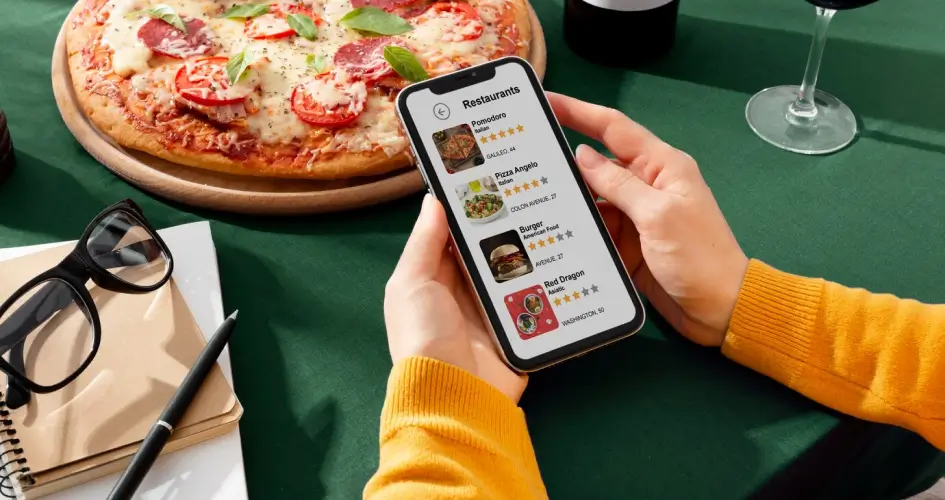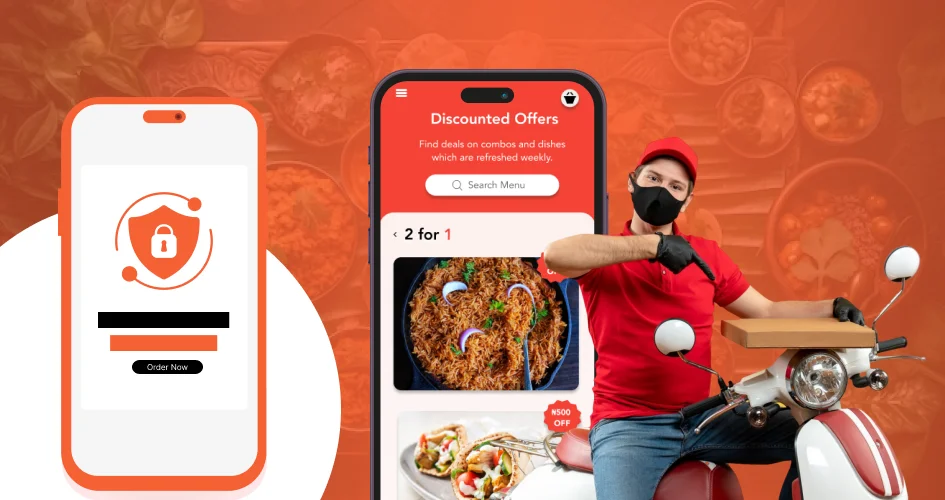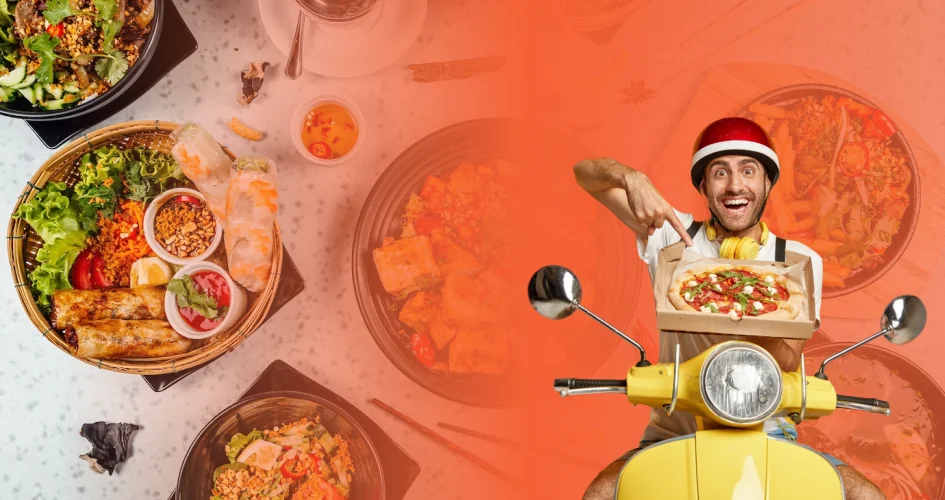The online food delivery industry is on a steady rise, and is expected to reach US$1.22 trillion by the end of this year alone.
If you’re looking to tap into this growing market, creating a food delivery app is a lucrative option.
That said, before investing in food delivery app development solutions, you need to determine a suitable business model first.
In this article, we’ll explain the pros and cons of both food aggregators and multi-delivery apps, as well as their key differences.
What is a Food Aggregator App?
A food aggregator is a web or mobile application that connects users with restaurants or eateries within a specific area.
It compiles menus and services from multiple restaurants, allowing users to browse, choose, and order food items through a centralized interface.
Here are some of the pros and cons of using a food aggregator app for customers:
| Pros | Cons |
|
|
For restaurants, partnering with a food aggregator also comes with its own set of benefits and drawbacks:
| Pros | Cons |
|
|
What is a Multi-Delivery App?
A multi-delivery app provides a one-stop solution for various delivery needs.
In addition to food, these platforms also offer delivery services for groceries, medicine, and even retail goods.
Unlike food aggregators, multi-delivery platforms usually have their own drivers, which mean more control over the delivery speed and workload.
From the consumers’ perspective, having multiple services available in a single app simplifies the user experience.
They no longer need to download and manage separate applications for various delivery needs.
That being said, the abundance of choices within a multi-delivery app may be overwhelming for some users.
Furthermore, since this type of app isn’t specifically made for food delivery, restaurants opting for this business model will find it even harder to establish unique positioning.
Differences Between Food Aggregator and Multi-Delivery Apps
Let’s compare these two business models further in terms of user experience, restaurant partnerships, delivery time, as well as cost and pricing structure.
Whether you want to create a food delivery app like Uber Eats or build a multi-delivery solution, this comparison will help you make an informed decision.
User Experience
Food aggregator apps are niche specific. They serve one main audience, which is customers looking for a convenient way to order food.
As such, the whole user interface is designed to serve this particular demographic, which results in a more personalized experience.
On the other hand, multi-delivery apps have far greater options users can choose from.
This can be overwhelming, and users might forget their purpose of opening the app in the first place.
Restaurant Partnerships and Options
Food aggregator apps focus on building relationships with a variety of restaurants within their niche.
This approach allows them to curate a selection of culinary options tailored to specific tastes.
In contrast, multi-delivery apps establish partnerships with a wide range of businesses beyond just restaurants.
While this diversity offers more options, it may result in a more general, less curated selection.
Delivery Time and Reliability
Food aggregators normally don’t have their own fleet – they rely on the manpower and resources of each restaurant for food delivery.
If you’re interested in this type of business model, remember that maintaining a stable and reliable delivery time is almost impossible.
This is because the delivery capabilities differ from one restaurant to another.
Unlike food aggregators, multi-delivery apps usually have some form of partnerships with drivers or third-party courier companies.
This method makes delivery time and accuracy more manageable, although it does require higher operational expenses.
Maintenance Cost
Speaking of expenses, running a food aggregator app is much more affordable than a multi-delivery app.
Why? Because you don’t need to worry about driver salaries and vehicle maintenance – the restaurants will be responsible for their own operational costs.
You only need to pay monthly fees to host and maintain your app.
You can even lower these costs by working with an app development agency that offers on-going support.
Intelivita is a prime example of such agencies.
Even after deployment, we’ll provide continuous performance optimization and bug fixing to keep your app running at its best.
Ready to Build Your Food Delivery App?
So, have you decided on a delivery business model?
Whether you want to focus on food delivery or provide an all-in-one solution, Intelivita is here to make your dream app become reality.
From designing a seamless navigation system to incorporating powerful app features like real-time order tracking, every element is customized to your needs.
Give our experts a call, and let’s build a thriving mobile app today.





